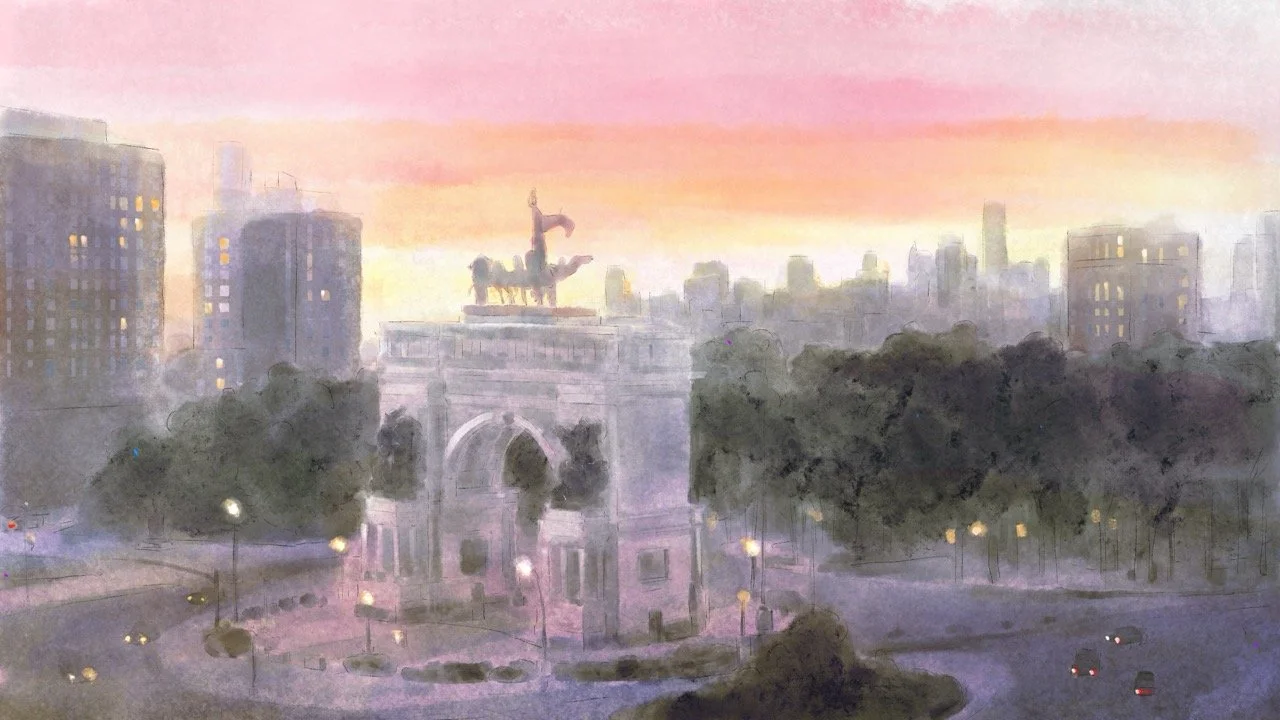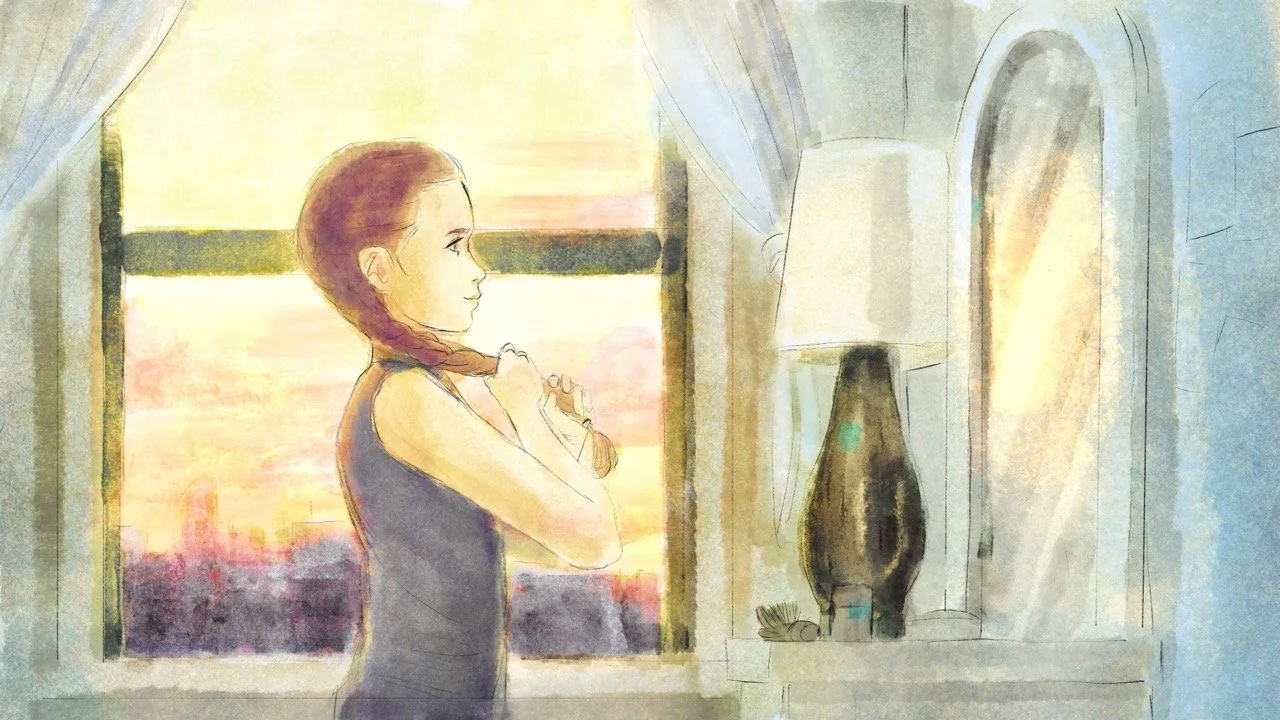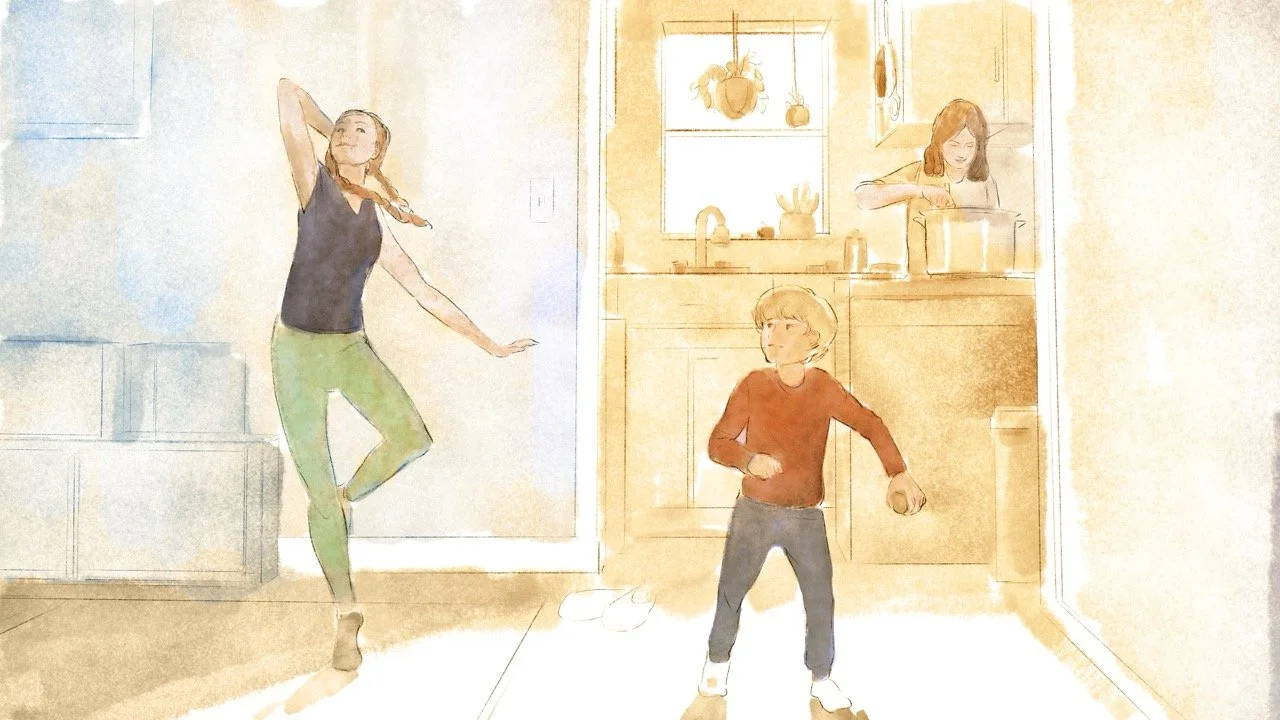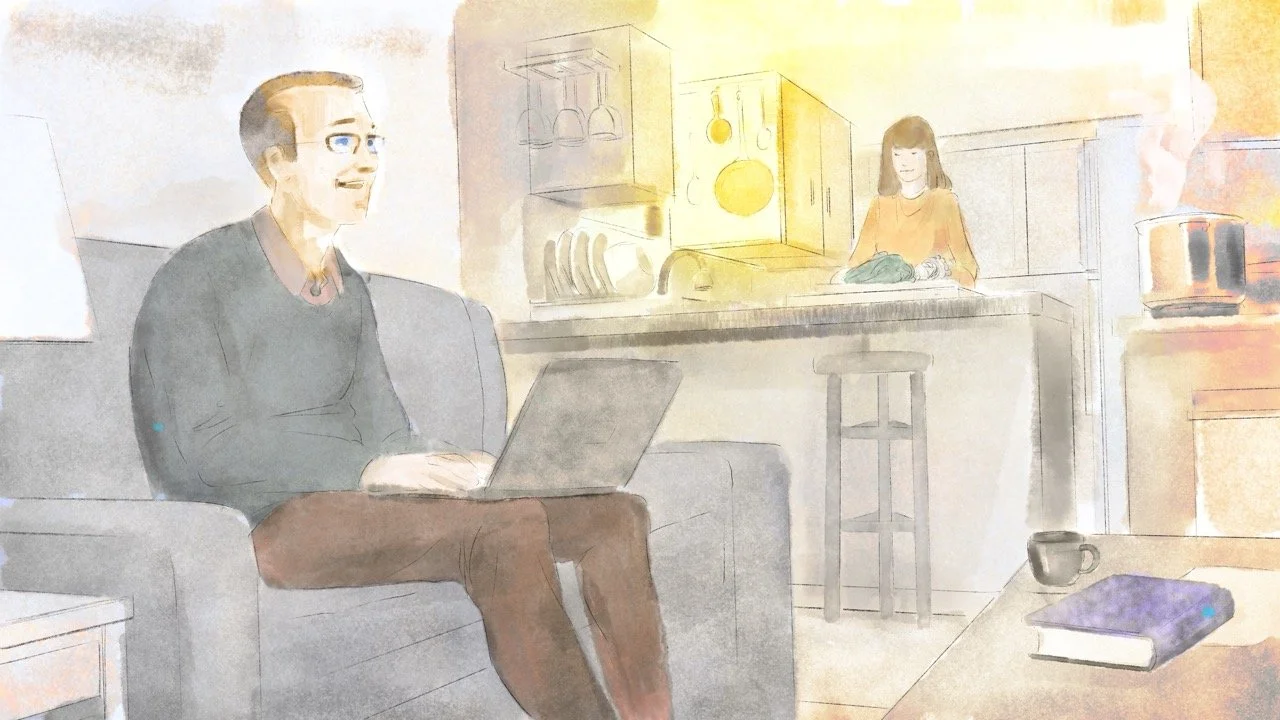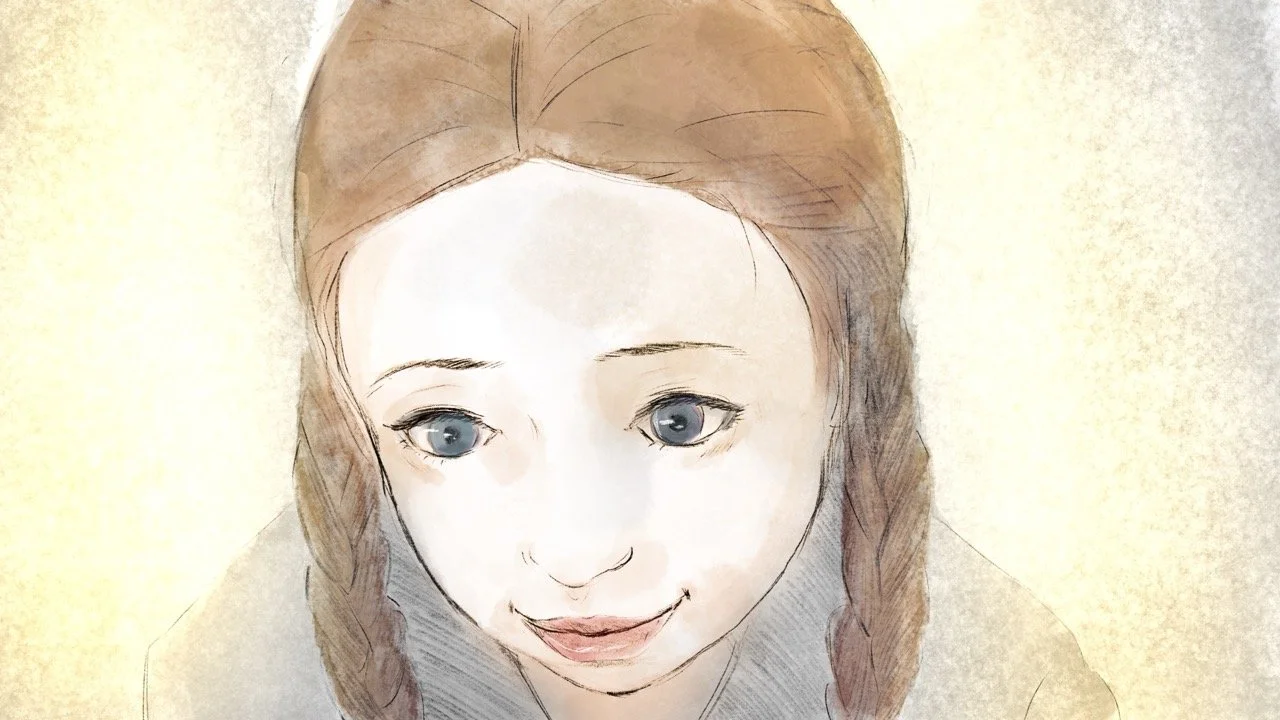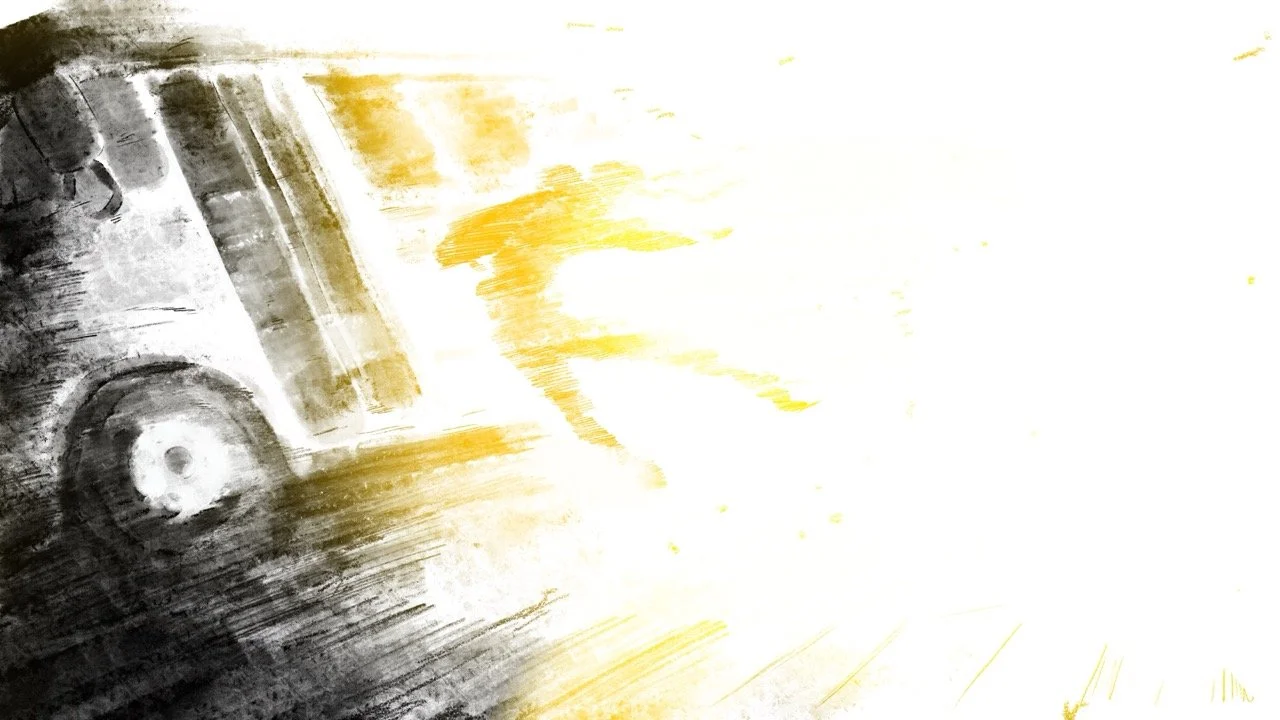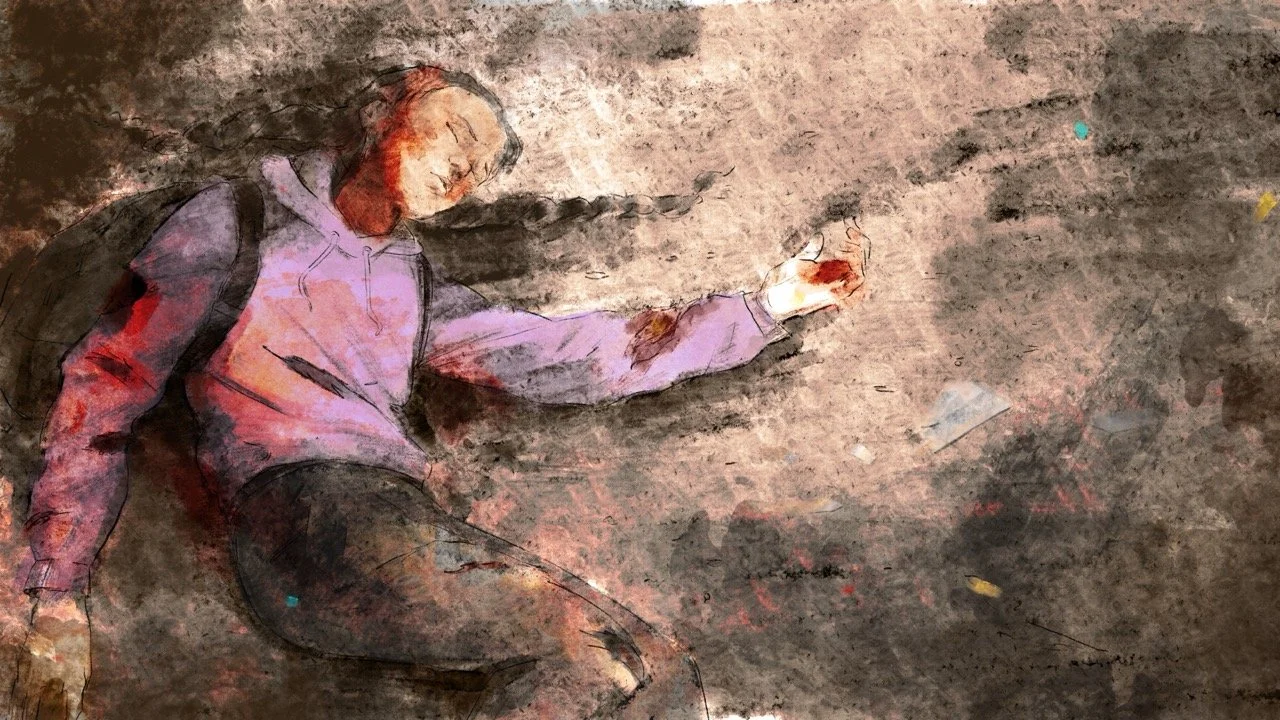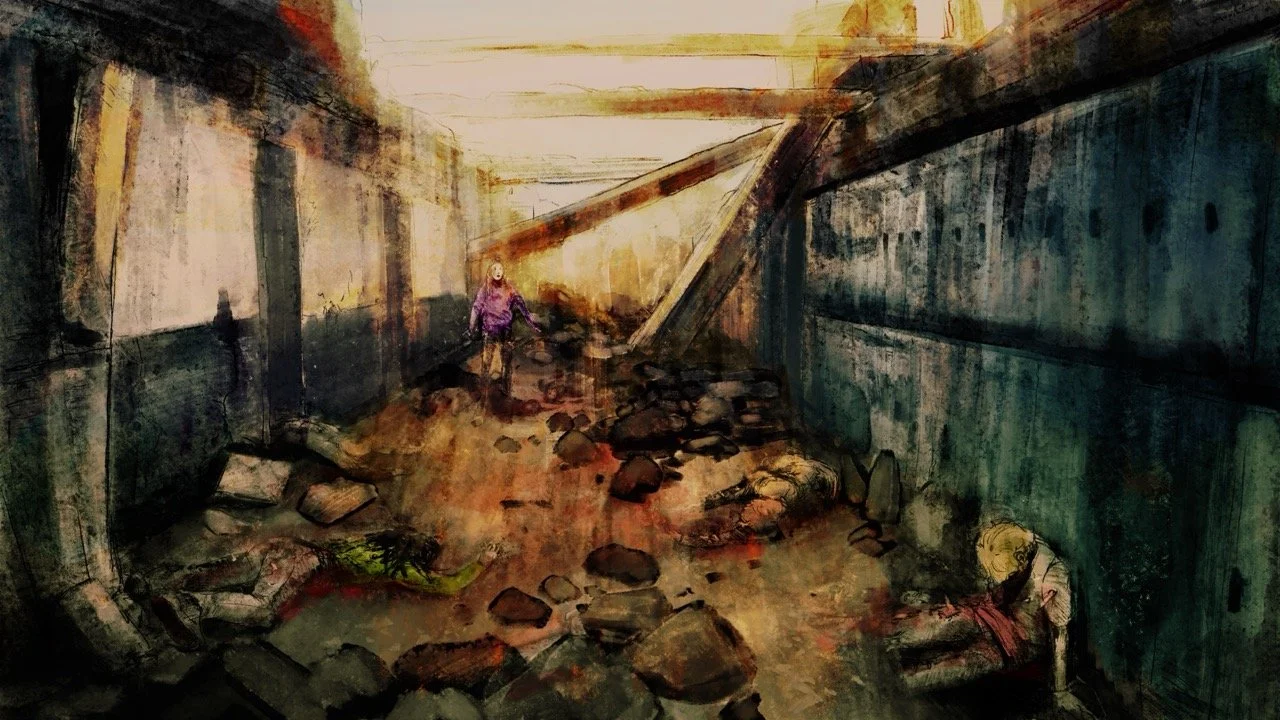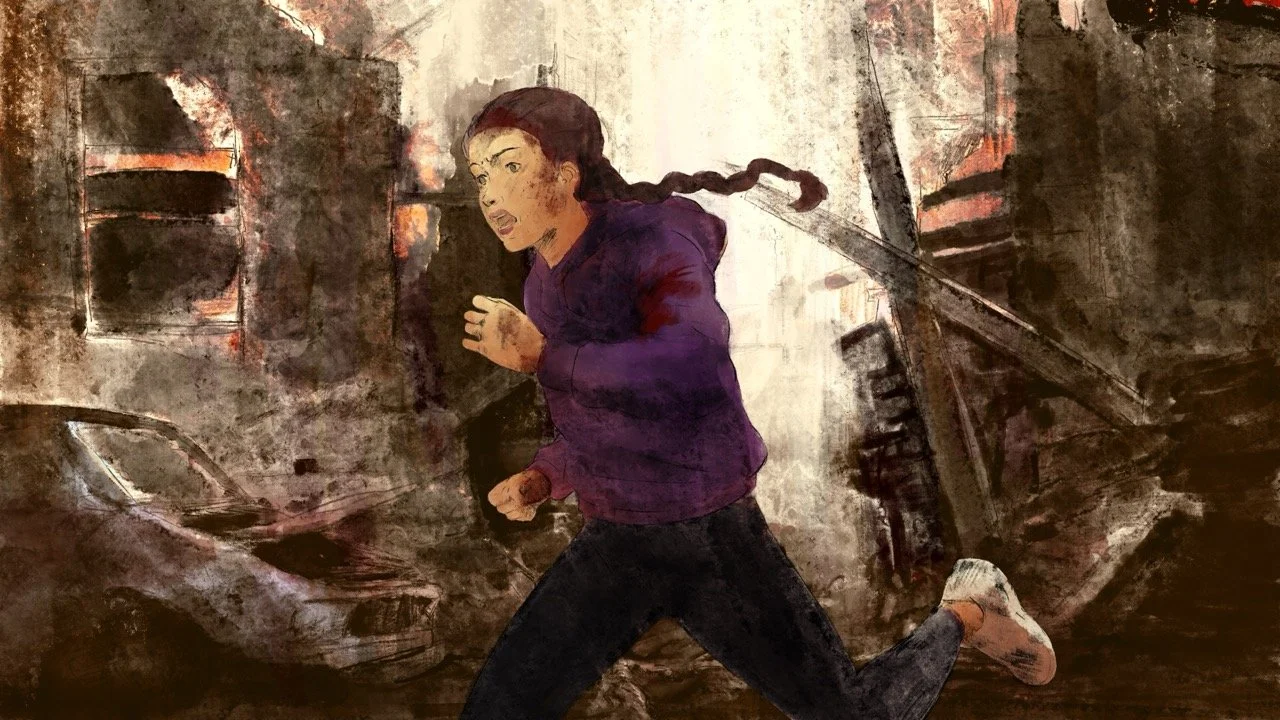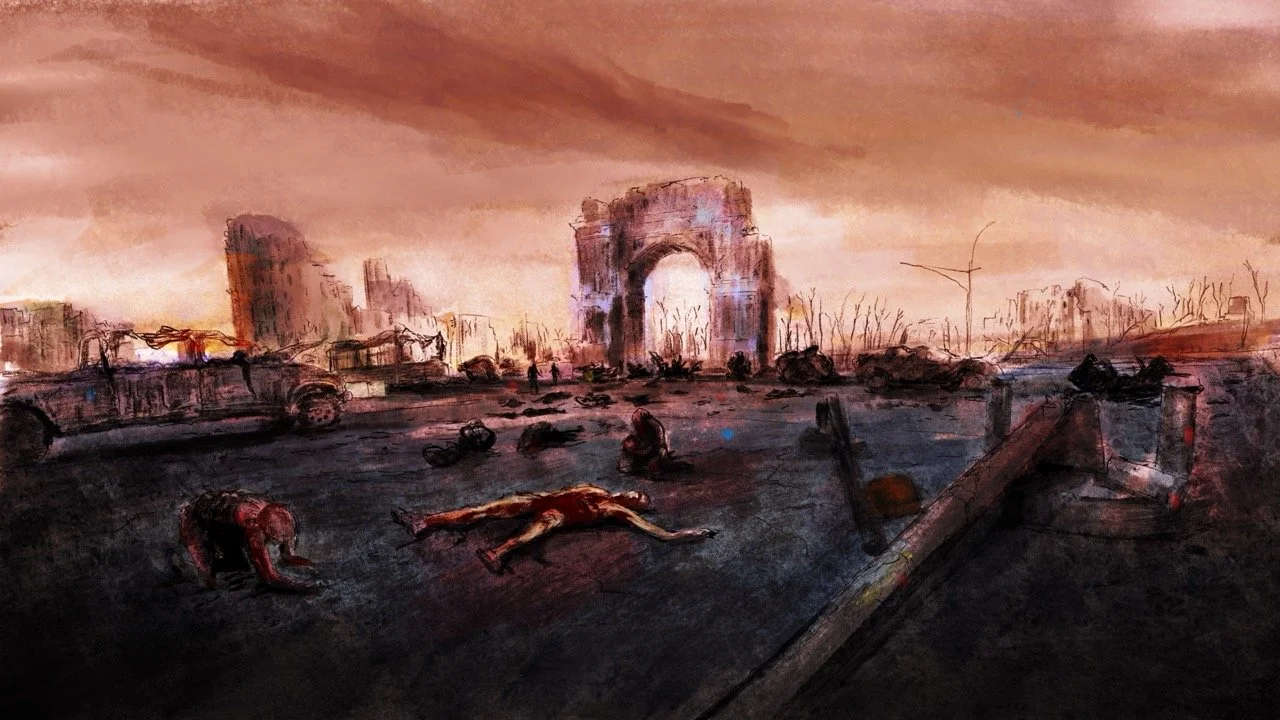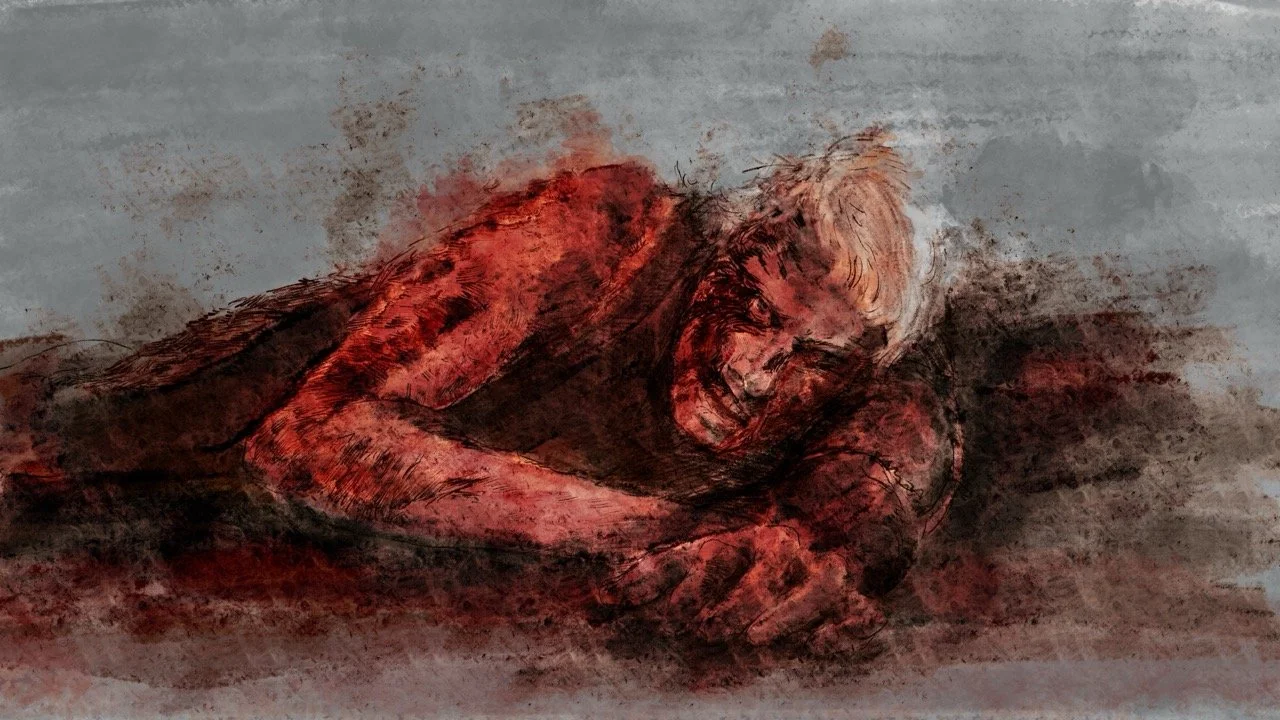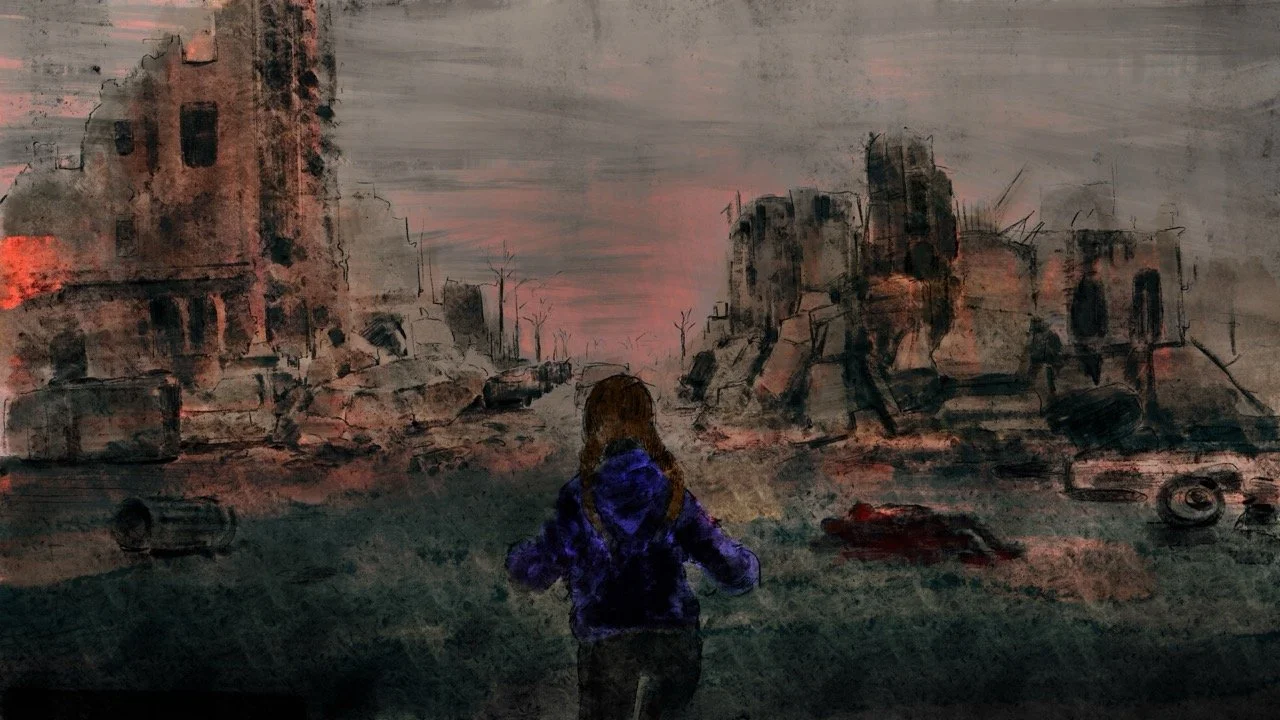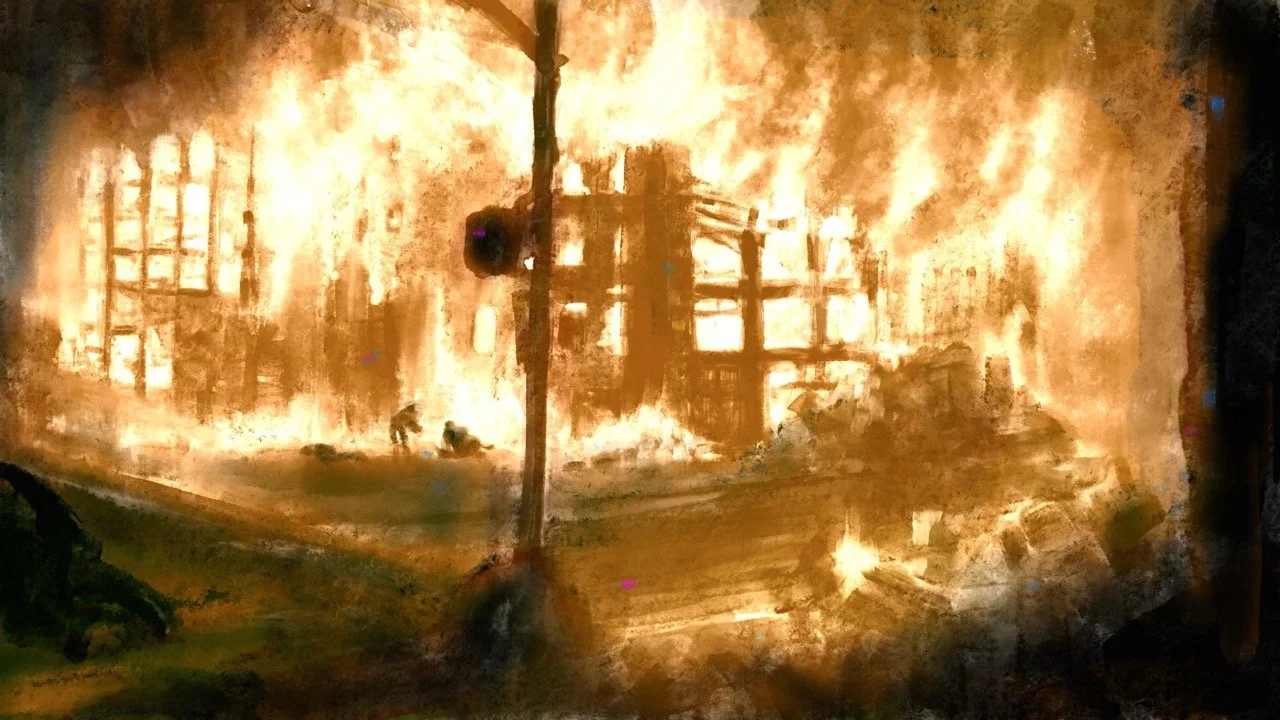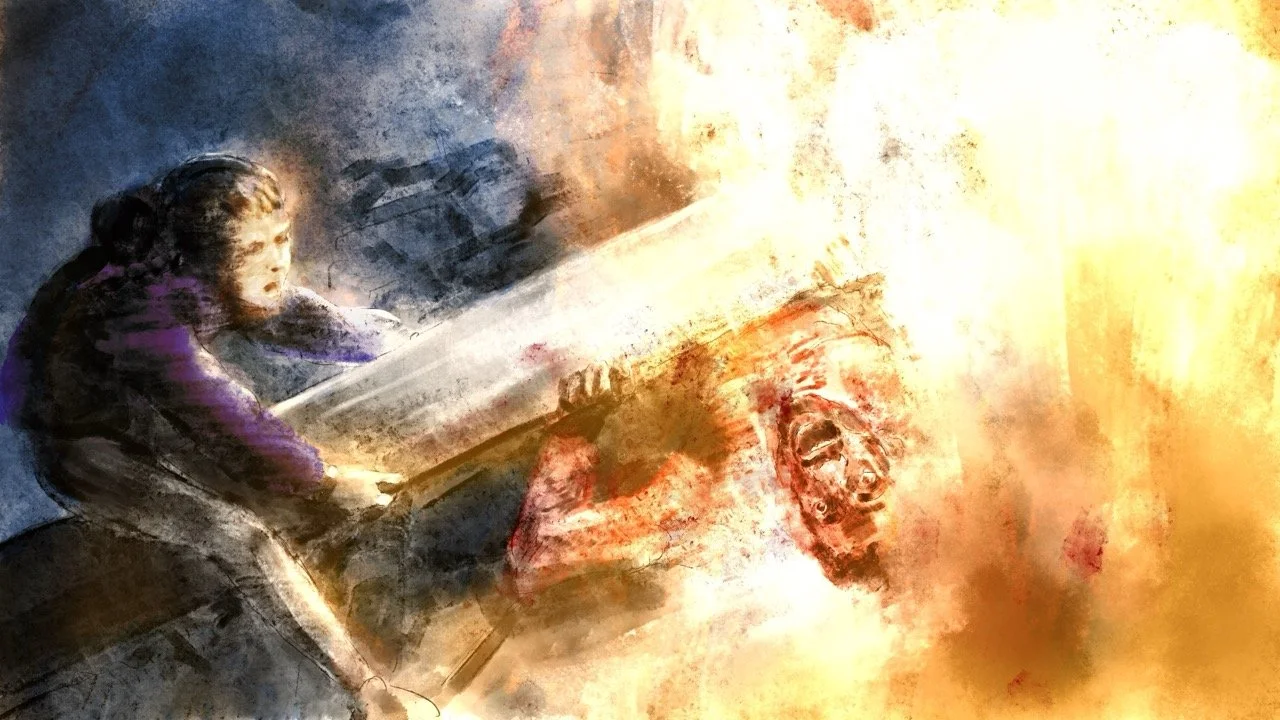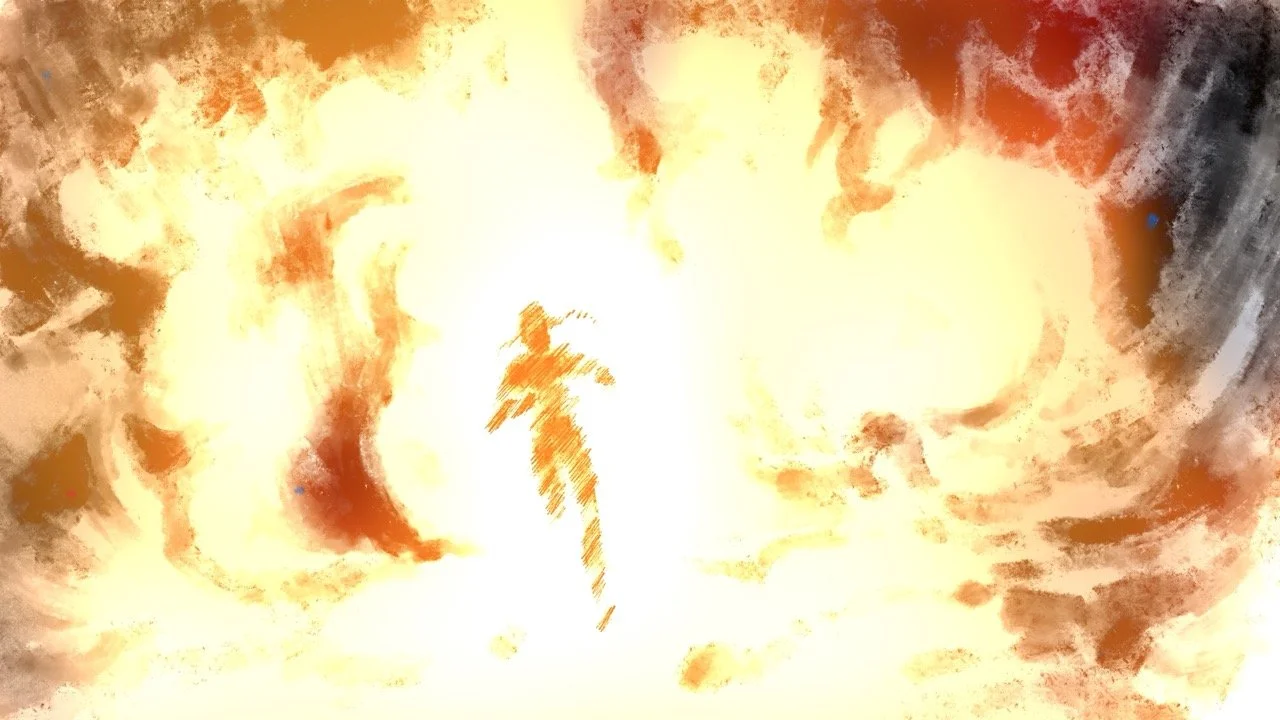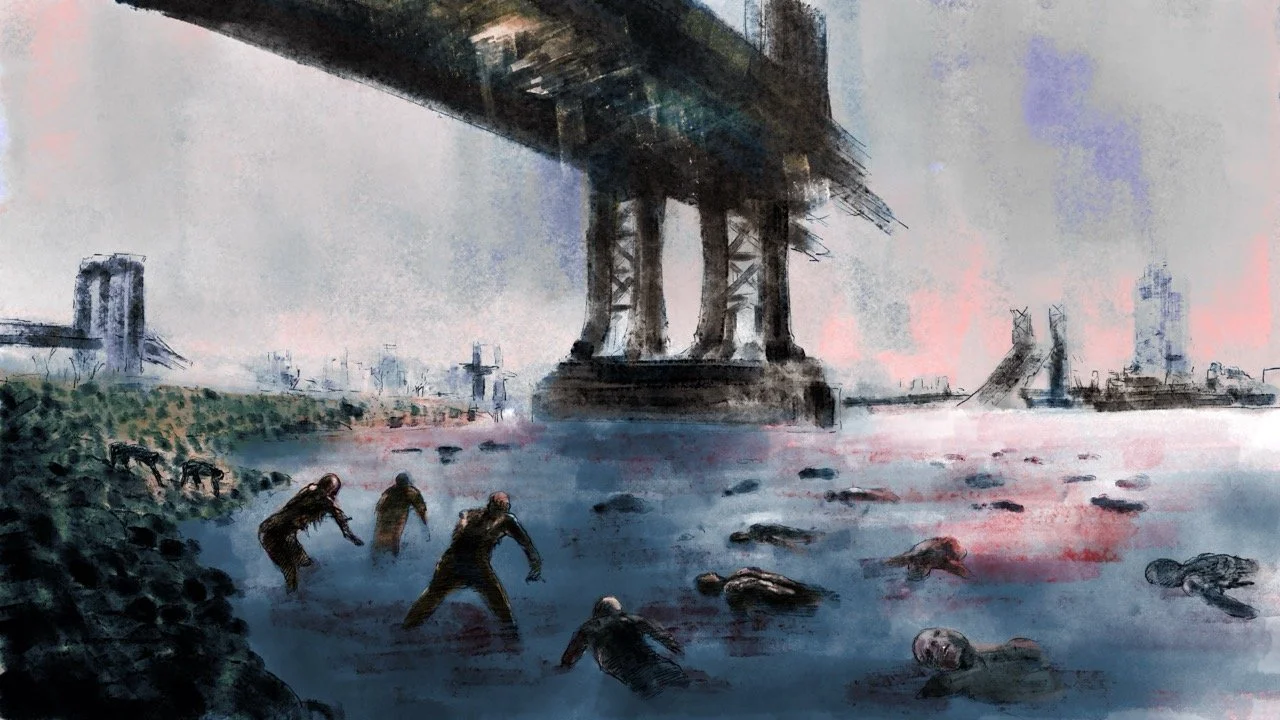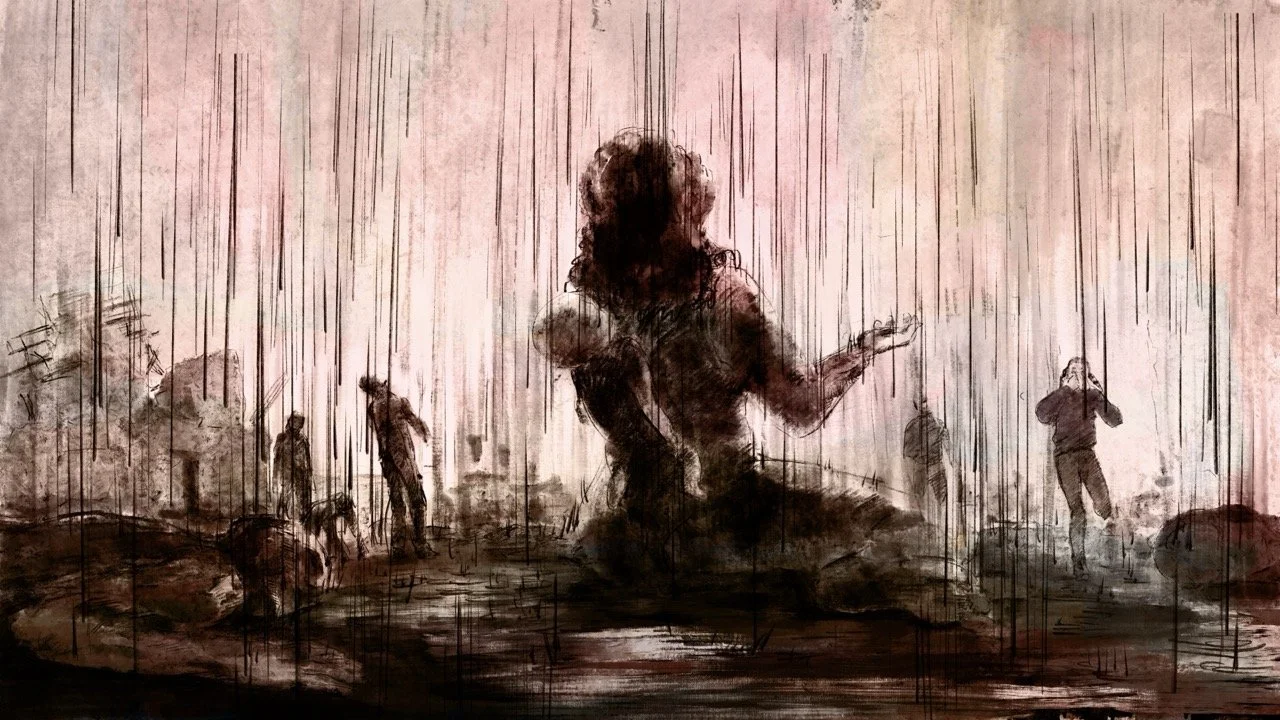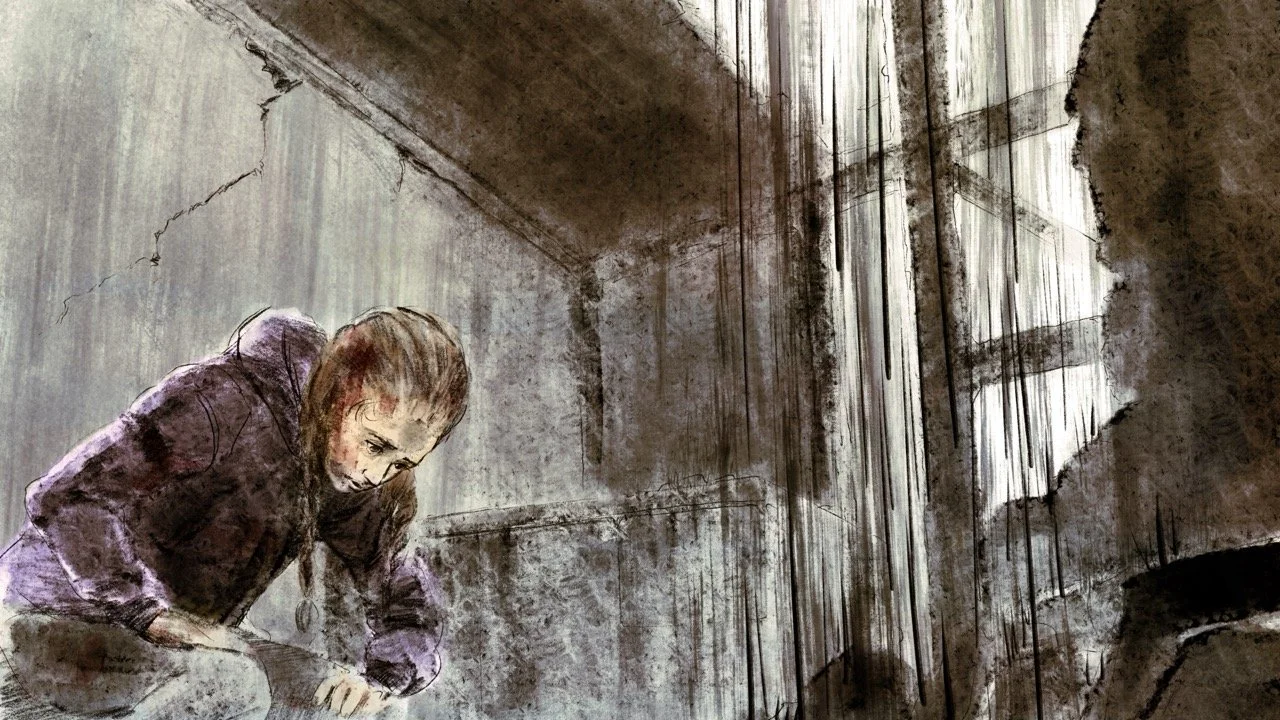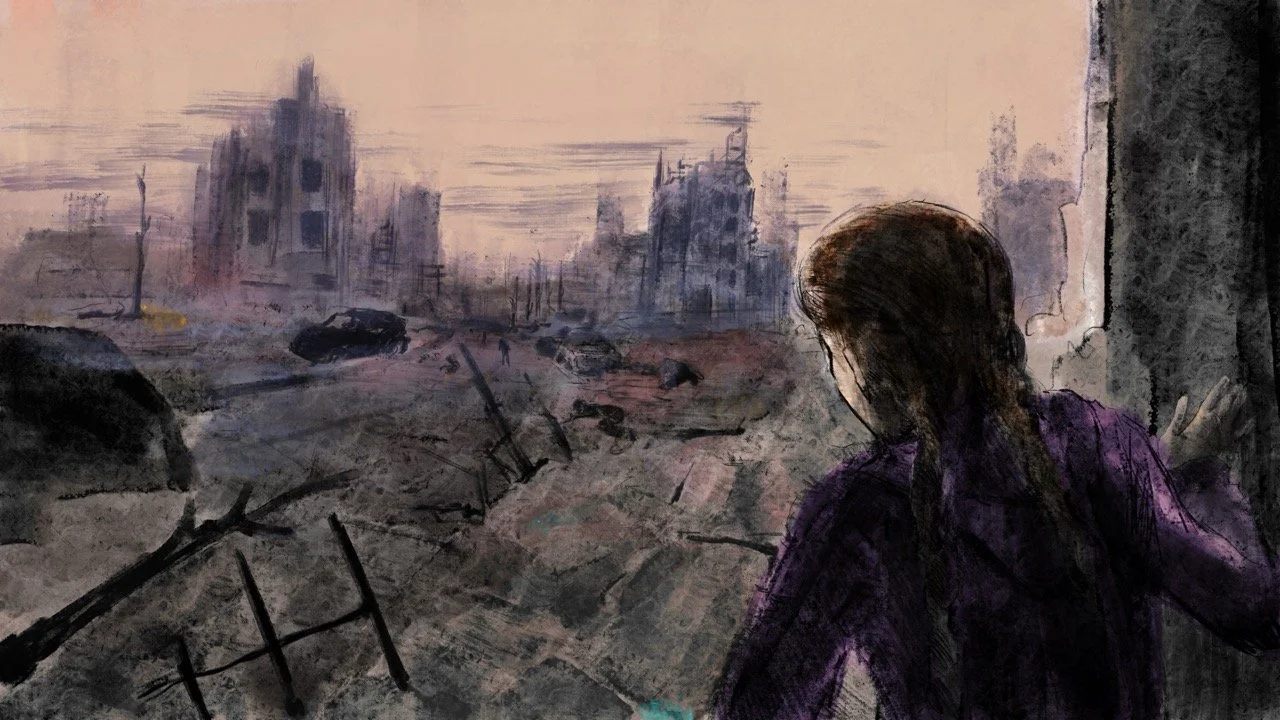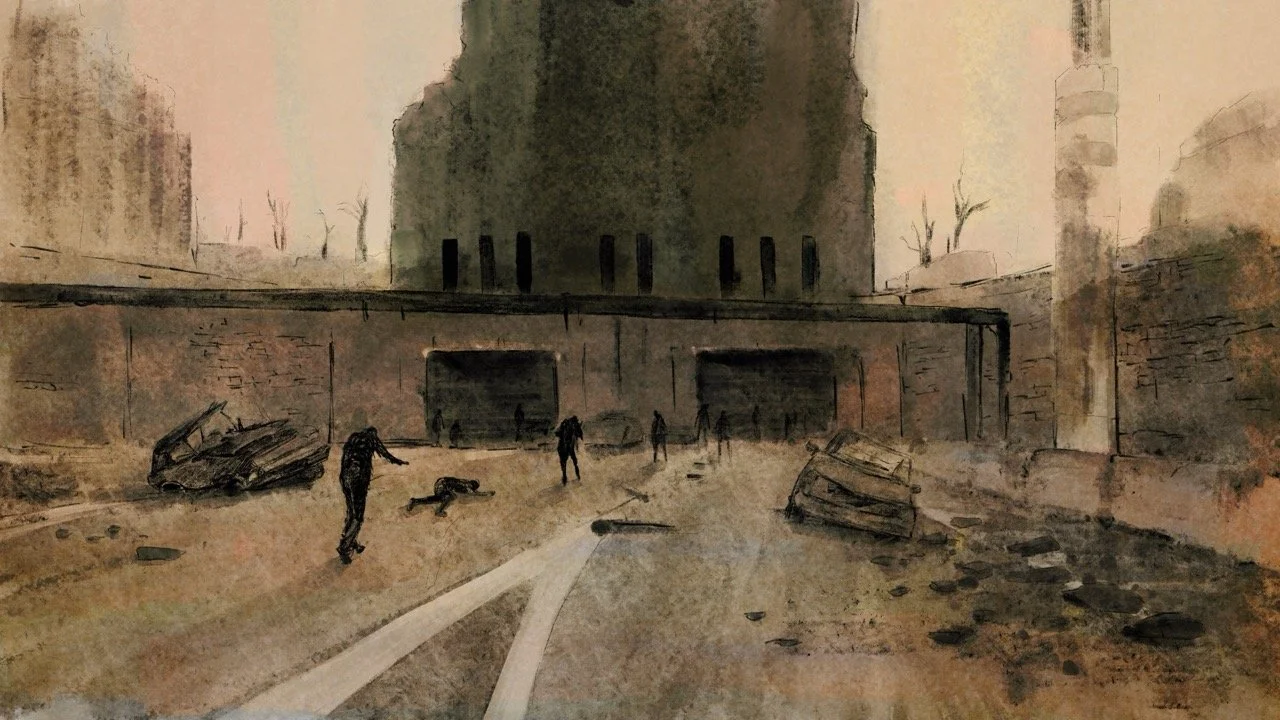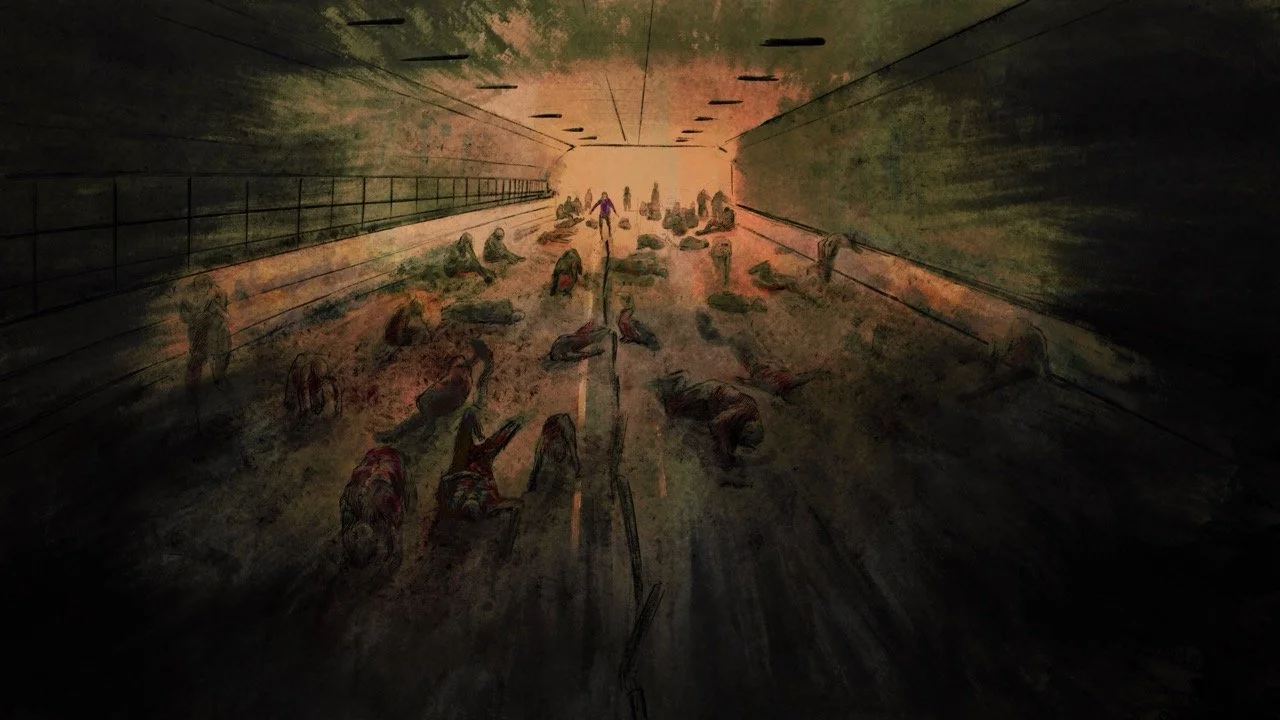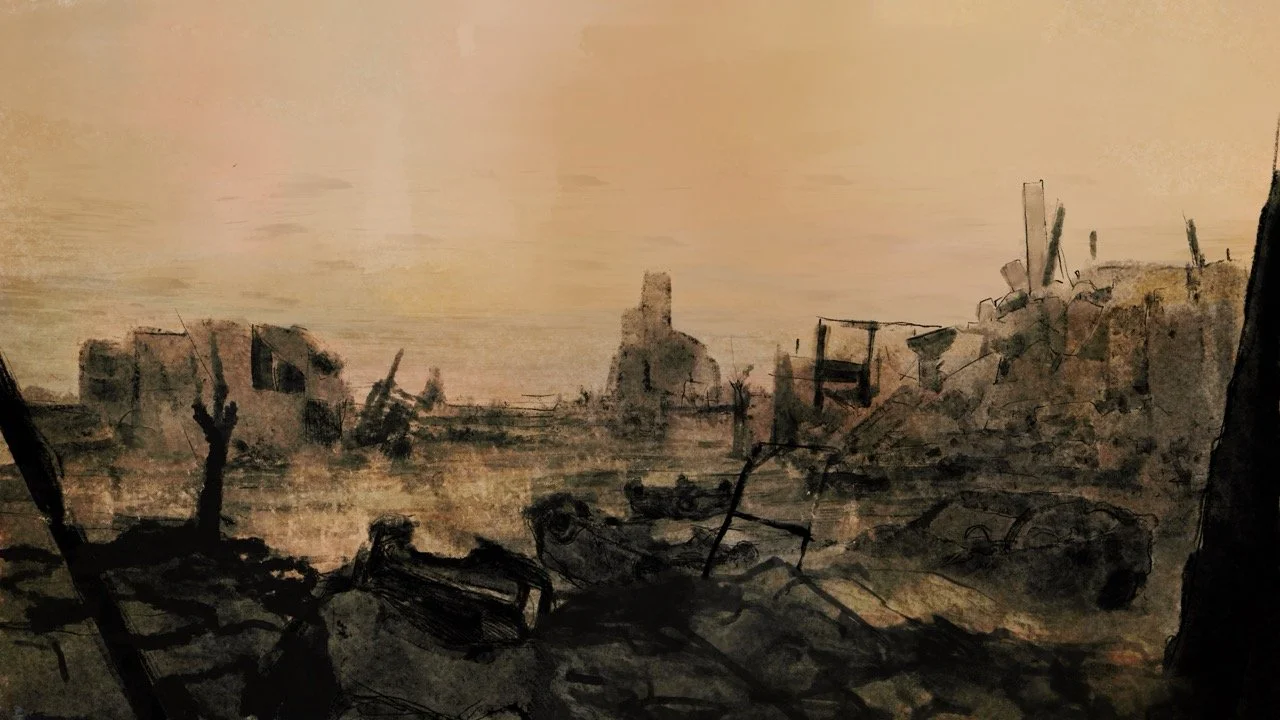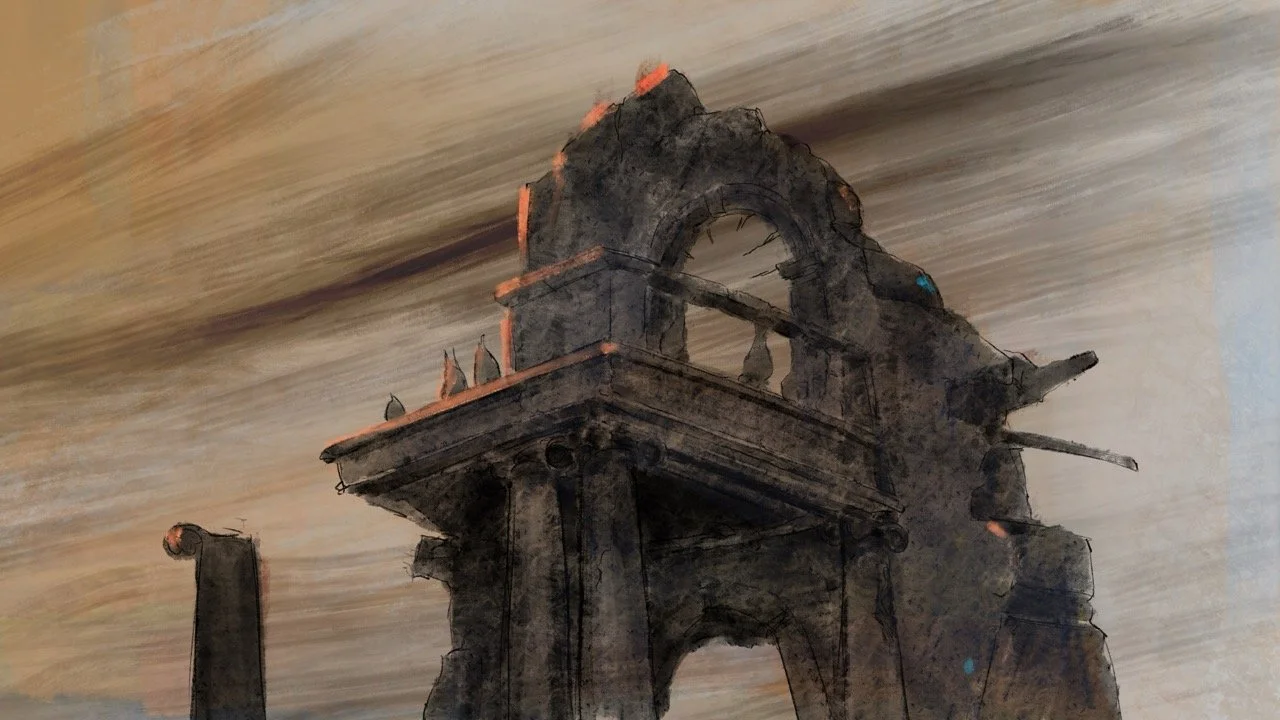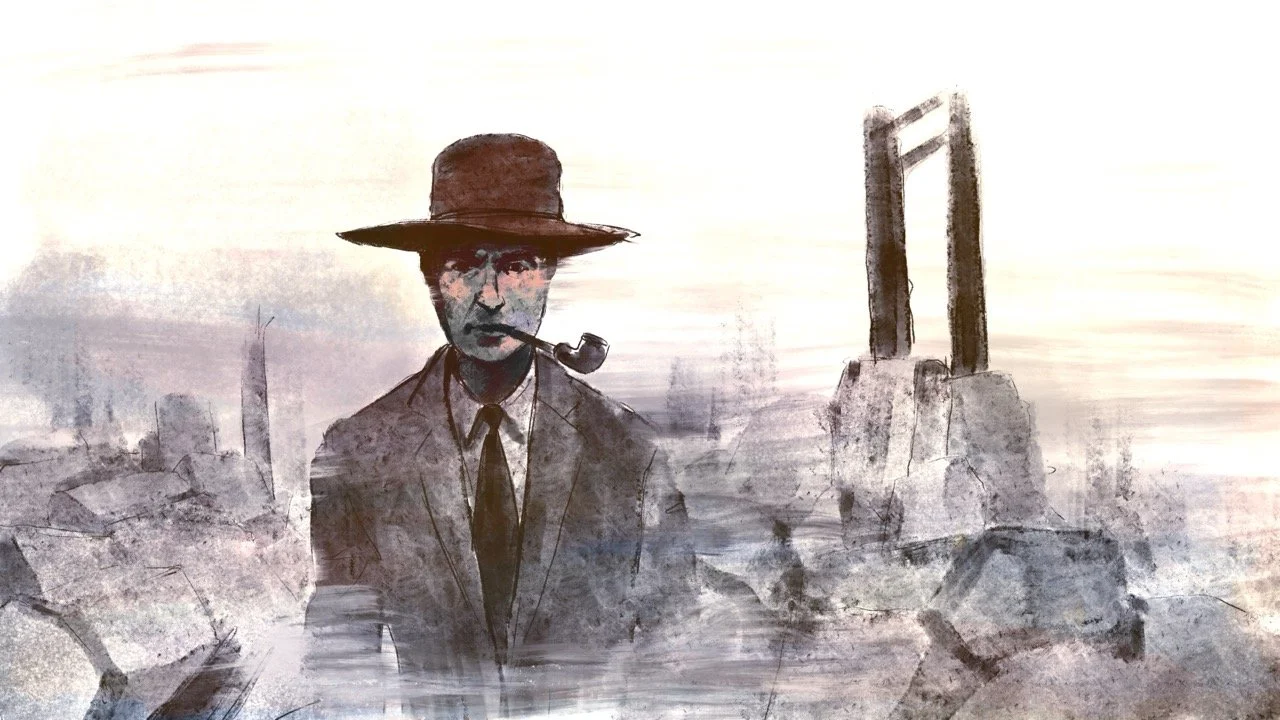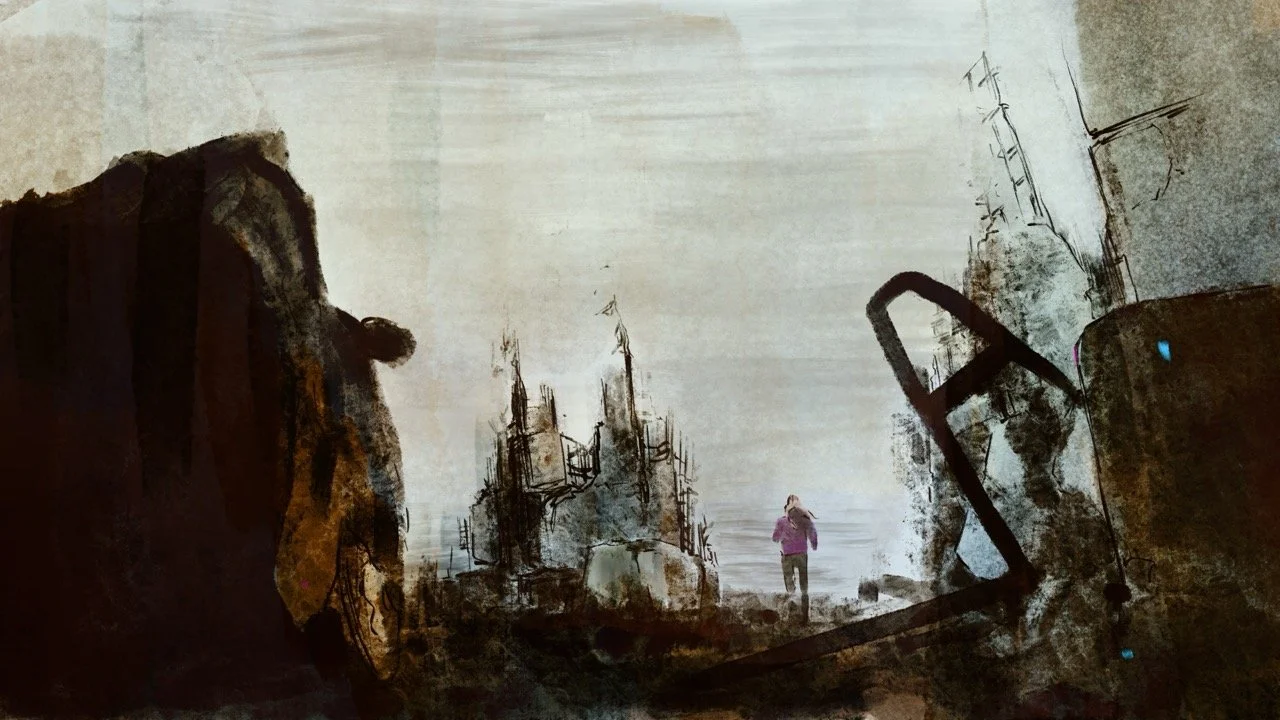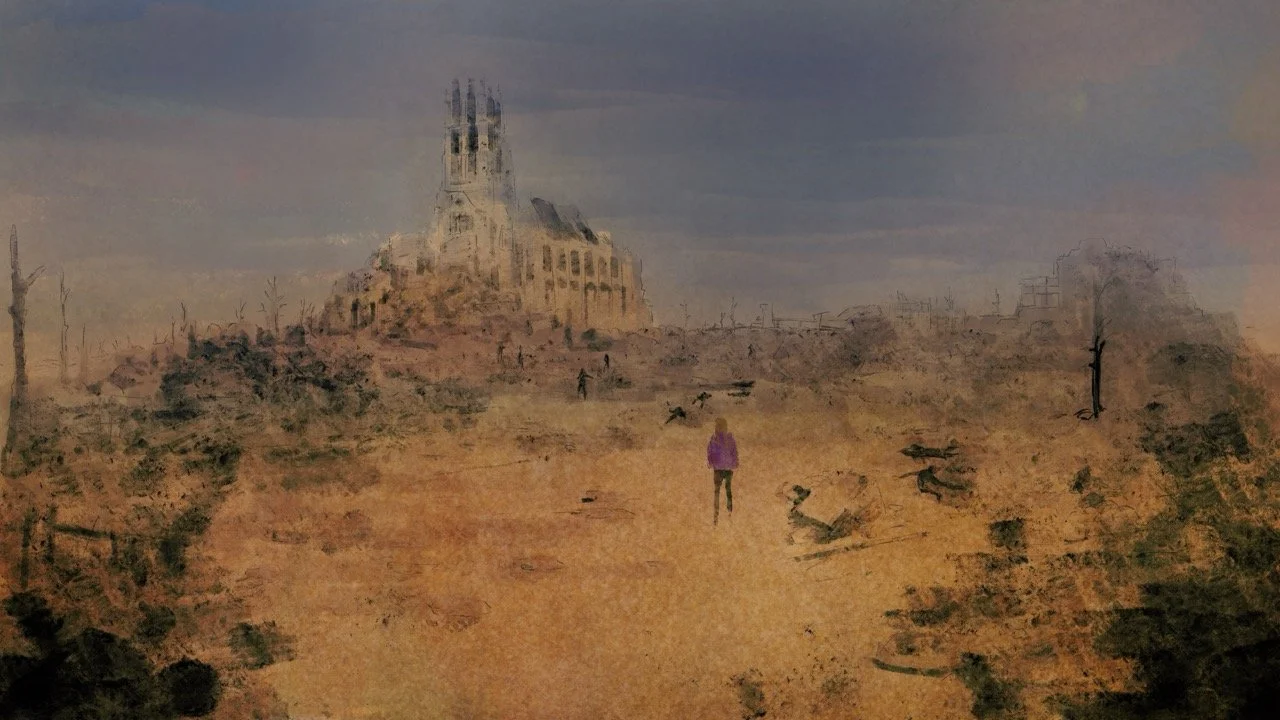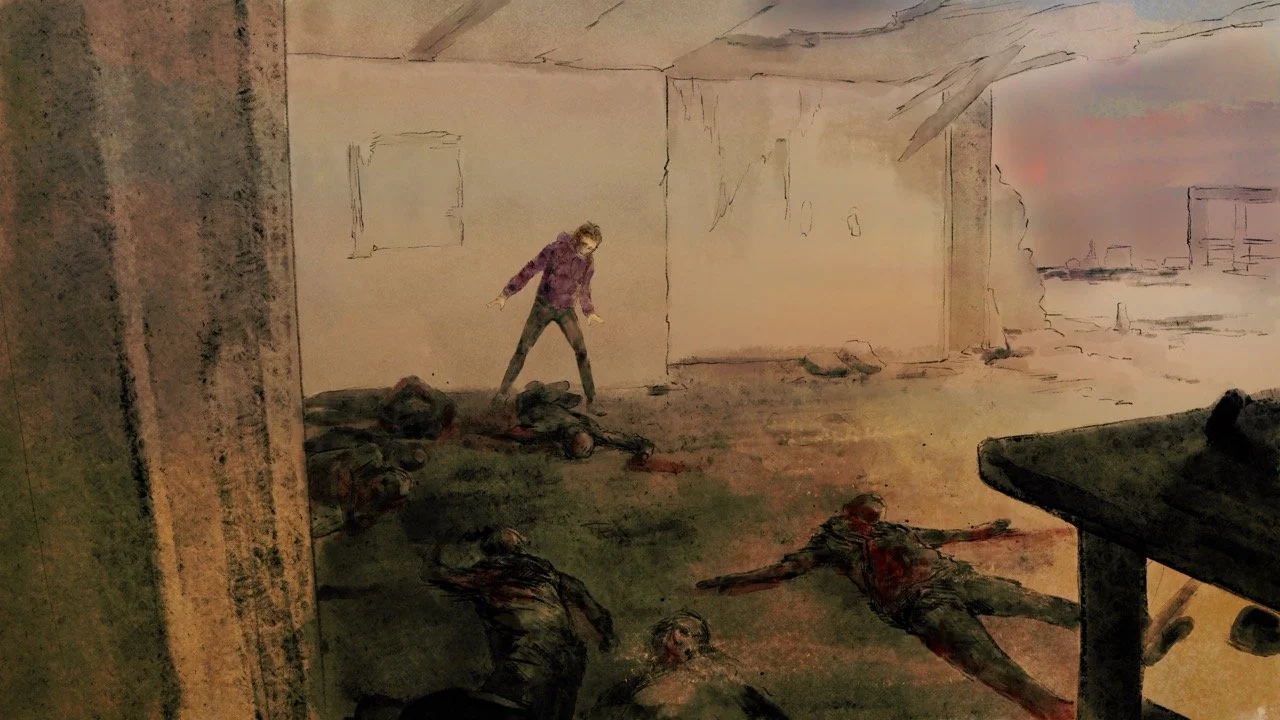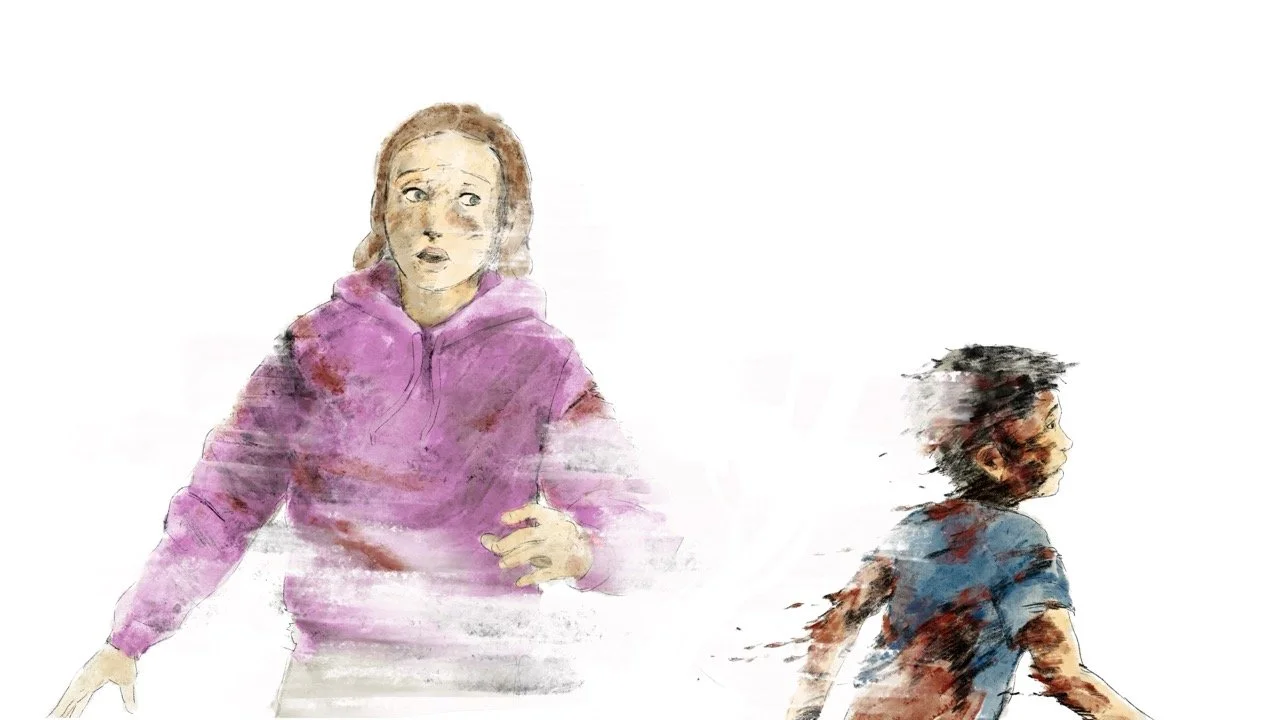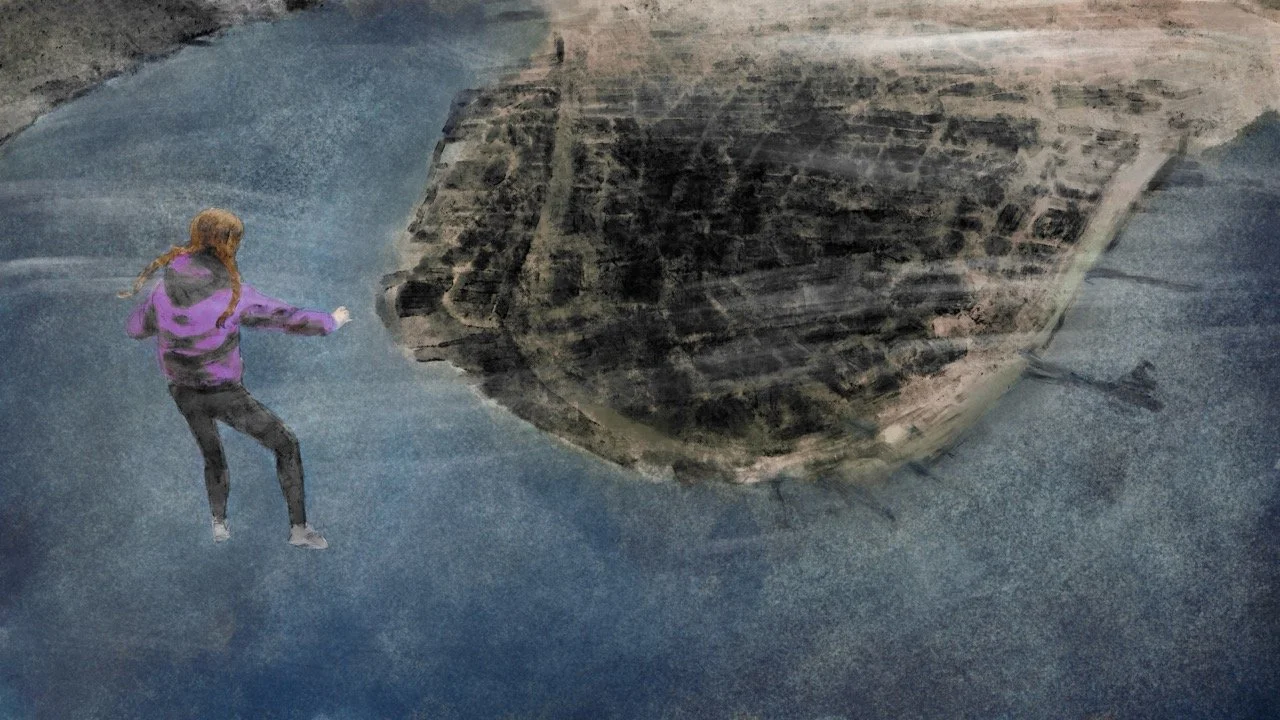Run, Run, Run
Prologue - The Day Before
The sun dipped low over the Brooklyn skyline, streaking the sky with pink and gold. Lila stood in front of her bedroom mirror, carefully adjusting the braids that framed her face. Her long chestnut hair was woven into two neat braids, each reaching halfway down her back. She liked how they made her feel—ready, steady, like she could move with purpose. Today had been exciting, and tomorrow promised to be even better.
Her little brother, Noah, bounced a ball against the wall, the rhythmic thud filling the room like a steady heartbeat. He was always in motion, always full of energy. He paused and shot her a mischievous grin. "Are you gonna dance like a superhero tomorrow?"
Lila laughed, smoothing down her dance top. The fabric felt snugger than it used to, and she tugged at it self-consciously. She missed being eight years old when her body was all straight lines and sharp angles, when she could move without thinking about how she looked. "Something like that," she said, twirling on her toes. "It's called modern dance. You just feel the music and move however you want." She loved that it wasn't rigid like ballet. It was free, unpredictable, fun—and nobody judged whether your body was the "right" shape.
Noah squinted at her, clearly unsure of what that meant, then picked his nose, examined what he'd found with scientific interest, and popped it into his mouth.
"Mmm, yummy!" he announced with satisfaction.
"Noah! That is disgusting!" Lila shrieked, though she couldn't help but laugh. It was probably his most ridiculous habit—and that was saying something for a six-year-old who also liked to see how many grapes he could fit in his mouth at once.
Noah shrugged, completely unbothered by her reaction, and went back to his ball game. "You'll be the best dancer tomorrow," he said with absolute confidence, as if eating boogers somehow made his opinion more authoritative.
The smell of fresh pasta and marinara sauce drifted in from the kitchen, warm and familiar. Their mother, Mila, was cooking, humming softly to herself as she moved gracefully through the space. Lila loved watching her mother in the kitchen—she always seemed so calm, so sure of herself.
In the living room, her father, Nova, sat on the couch, working on his laptop. He was a professor at Columbia University, specializing in the history of the Cold War. He looked up and caught Lila's gaze with a proud smile. "Ready for your performance tomorrow?"
Lila nodded eagerly. "I've been practicing for weeks. I know I'll be great." Just thinking about the stage sent a rush of excitement through her. She could almost hear the applause, see her parents clapping, feel the music carrying her across the floor.
Her birthday was only a week away. She would be thirteen—another year older, a step closer to being a grown-up. Maybe she'd get a new dance outfit, something that would make her feel more confident about the changes happening to her body. She liked the idea of getting older, of having more choices, more freedom, like the big girls at her school. But sometimes she wished she could stay the same size forever—back when she didn't have to worry about whether her leotard made her look different than the other dancers.
Closing her eyes, she imagined herself dancing—fluid and strong, gliding across the stage. In her mind, she moved with perfect grace, and nothing else mattered. It felt like everything had led to this moment. Tomorrow was going to be perfect.
For now, it was just another evening in Brooklyn—Noah's laughter, the smell of dinner, the warmth of home.
Chapter 1 - The Flash
Lila woke up to silence.
She didn’t remember falling asleep. One moment, she was stepping off the school bus, walking toward the school’s entrance.
Then—a blinding flash of white light.
Now, she lay on the sidewalk, concrete rough against her cheek, dust coating her tongue like chalk. Her lavender hoodie was torn, the fabric singed at the edges.
The air smelled like burned meat and melted plastic. Something sharp and chemical that made her throat burn.
Suddenly, it was dark as twilight, though she could swear it had been noon just moments before.
Her ears buzzed with a high, persistent whine.
"Elliot?" she whispered her friend's name, barely hearing her own voice over the ringing. "Josh? Sandy?" She called out the names of her classmates, but her voice seemed to disappear into the thick, dusty air.
No answer.
She pushed herself up, her palms scraping against broken glass, and stumbled toward the school.
The windows were shattered, gaping holes like missing teeth. The walls—half destroyed, revealing twisted metal beams and dangling electrical wires.
She stepped through what used to be the entrance, but inside was outside, too. The roof had collapsed, letting in that strange, artificial twilight.
Then—she gasped.
Countless bodies lay scattered across the floor, small forms in familiar clothes. Shards of glass embedded in their skin caught what little light filtered through the destruction.
She screamed.
And ran.
Her mind swirled with confusion. Everything was wrong. The world had collapsed, and she couldn't understand how or why.
I need to find my family.
Lila turned and ran into the strange, dark day.
Chapter 2 - Hiroshima
The fastest way home was through Prospect Park. She sprinted from the school, her sneakers pounding against cracked pavement, past Grand Army Plaza.
The city was unrecognizable. Buildings had crumbled into mountains of concrete and twisted steel. Windows were blown out, their frames melted and warped. Cars lay overturned and crushed like tin cans, their paint burned away to reveal blackened metal underneath. Trees that once provided shade now stood as charred skeletons, their branches reaching toward the dark sky like desperate fingers.
A horrible silence engulfed everything—no car horns, no sirens, no voices calling out. Even the birds were gone.
She could hear nothing but the sound of her own footsteps echoing off the ruins, her breath ragged and loud in the unnatural quiet.
At the plaza, the great memorial arch stood broken. The statues that once sat proudly atop the monument lay in pieces on the ground, their faces worn away by some terrible heat.
Underneath the wreckage, there was a man. Half his body was charred black, his clothes fused to his skin. With a voice like gravel, trembling and weak, he whispered,
"Hiroshima..."
Hiroshima?
Lila had learned about Hiroshima at school and from her father. Hiroshima and Nagasaki were the only two cities in history to have been struck by nuclear bombs during World War II. Her father had shown her pictures—the mushroom cloud, the flattened buildings, blackened human bodies, the shadows burned into walls.
What did he mean about Hiroshima? What was he trying to tell me?
Could this be... a nuclear bomb?
The thought hit her like a physical blow. Her legs nearly gave out beneath her.
There was no one to give any answers, or any help. The man's eyes had already gone glassy and still.
Darkness pressed down on the park like a heavy blanket.
Then—
"Water... please..."
Lila turned, and her stomach lurched.
Hundreds of people staggered toward her through the haze. Their skin hung from their bodies in melted ribbons. Some had no lips left, their teeth exposed in silent, endless screams. Others barely looked human at all—intestines trailed behind them like shadows.
"Water," they begged, their voices a chorus of pain. "Please... give me water..."
Terror clawed up Lila's throat. She choked back a scream—
And ran.
I need to go home. Mom and Noah will be there. They have to be there.
Lila didn't stop running until she reached her block, her lungs burning with each breath.
But she couldn't find her building. She was sure she was in the right place—there was the bodega where she bought candy, or what was left of it. There was the fire hydrant she used to jump over. But where her apartment building should have stood, there was only a pile of rubble and twisted metal, still smoking.
"Mom!" she screamed, her voice cracking. "Noah!"
No answer.
No one was there.
Chapter 3 - The Firestorm
The wind shifted, carrying with it the acrid smell of smoke and something worse. And then came the fire.
Flames surged through the ruins like a living thing, devouring what remained of Brooklyn. The heat was so intense it made the air shimmer and dance. Buildings collapsed as their steel bones twisted and melted in the inferno.
Lila ran, the soles of her shoes growing hot against the superheated pavement. The air itself felt like breathing from an oven, scorching her lungs with each gasp. Sweat poured down her face, only to evaporate instantly in the furnace-like heat. Her clothes stuck to her skin, and she could feel the temperature rising so high it seemed like her very blood might boil.
A man ahead of her stumbled and fell as debris pinned his legs. He struggled frantically, his face contorted with terror as the flames approached.
Lila stopped and tried to help. She grabbed at the concrete chunks, but they were too heavy, too hot to touch for long. The man's eyes met hers, wide with desperation.
"Please," he gasped.
The fire roared closer, a wall of orange and red. Lila pulled until her hands bled, but it wasn't enough.
The flames swallowed him whole. His screams cut through the roar of the fire before being suddenly, horribly silenced.
Lila choked back a sob, her tears evaporating in the scorching heat before they could fall.
She kept running, guilt and terror warring in her chest.
I have to find Mom and Noah. They need me.
"Mom! Noah!"
The raging fire swallowed her voice, turning her desperate calls into whispers.
There was no sign of them. She couldn't see anyone alive—nothing but fire and smoke and the skeletal remains of her neighborhood.
Lila ran until her legs shook and her vision blurred.
And she didn't stop.
She couldn't stop.
Chapter 4 - Black Rain
When she finally looked up from her desperate flight, she found herself by the river. The sight that greeted her made her stomach turn.
The Manhattan Bridge was gone, its massive structure collapsed into the East River like a broken toy. The Brooklyn Bridge, too—once a proud symbol of the city, now nothing but mangled wreckage of stone and steel jutting from the dark water.
The river itself had become something obscene. Bodies floated like debris, their skin blackened and peeling, faces swollen beyond recognition. They no longer looked human—just shapes that had once been people, now part of the poisoned water.
Some survivors stood at the water's edge, their clothes in tatters, their skin blistered and raw. Desperate to cool their burning bodies, they threw themselves into the contaminated river. Lila watched in horror as they sank beneath the surface and didn't come back up.
It was too much to take in. She turned away from the river of dead and dying, bile rising in her throat.
She had no idea how many hours had passed since the firestorm began, but eventually, mercifully, it gave way to rain.
But this wasn't ordinary rain. It fell thick and heavy, black as motor oil, coating everything it touched with a slick, oily sheen.
People on the street looked up with relief, opening their mouths to catch the drops. They were so thirsty, so desperate.
They drank.
And then they collapsed.
Their bodies convulsed once, twice, then went completely still.
Lila pressed both hands over her mouth to keep from screaming, but no sound would come anyway.
Don't drink it. Don't touch it.
She ran again, this time looking for shelter.
The black rain kept falling, turning the streets into rivers of poison. She slipped and slid on the contaminated ground until she found a building that was somehow still standing—barely.
She rushed inside as quickly as she could.
It was empty, of course. The windows were blown out, parts of the ceiling had caved in, and everything was covered in a thick layer of ash and debris. But compared to the destruction outside, this place felt almost safe. It reeked of smoke and chemicals, but at least it was dry.
Lila sank to the floor, her whole body shaking.
Where are Mom and Noah? I have to find them. I have to.
She couldn't understand how everything had fallen apart so completely, so fast. Just this morning, she'd been worried about her dance performance. Now the whole world seemed to be ending.
Her thoughts drifted back to the burned man at Grand Army Plaza and his single word: Hiroshima.
If this really was a nuclear bomb, what am I supposed to do? How do I survive this?
But there was no one left to answer her questions. The weight of the silence pressed down on her like a physical thing.
All at once, exhaustion crashed over her in waves. Her limbs felt heavy as lead, and her eyelids refused to stay open.
She collapsed onto the debris-covered floor, her mind finally unable to process any more death and destruction.
Chapter 5 - The Tunnel
When Lila woke, the black rain had stopped, leaving behind a world coated in an oily, toxic film.
She stepped outside, half-hoping against hope that it had all been some terrible nightmare.
It wasn't.
Brooklyn was still in ruins. Buildings remained collapsed. Ash still coated the streets like gray snow. The horror was real and inescapable.
Daddy. I have to find Daddy.
If her father, Nova, was still alive, he'd be at Columbia University. He was supposed to be teaching there today—had it really only been today? Time felt broken, meaningless.
A small flame of hope flickered in her chest. Her father was smart, knowledgeable about these things. If anyone could have survived, it would be him.
She had visited the university many times before. It was in Upper Manhattan, near the Riverside Church with its tall, distinctive tower.
If the bridges are gone, I'll have to find another way.
The tunnels.
The Battery Tunnel would take her under the river to Manhattan. It would be dangerous, but it was her only choice.
After what felt like hours of picking her way through the rubble-strewn streets, dodging pools of contaminated water and the bodies of those who had drunk the black rain, she finally reached the tunnel entrance.
She wasn't alone.
*
Scattered around the entrance were hundreds of survivors—or what remained of them. They huddled in corners, covered in soot and worse things, some trembling uncontrollably. Many weren't moving at all, their eyes staring at nothing.
Lila didn't hesitate. She couldn't afford to.
She stepped into the tunnel's mouth, and darkness swallowed her whole.
The air inside was thick and poisonous, heavy with the stench of burnt rubber, scorched metal, and something else—something rotting that made her gag.
She should have been coughing, choking on the foul air. But somehow she wasn't. The thought drifted through her mind and away again, unimportant compared to her mission.
All she could think about was her father, waiting for her at the university.
The tunnel stretched on endlessly, a throat of darkness leading into the unknown.
Chapter 6 - The Birthplace
Lila emerged from the tunnel into Manhattan, and if Brooklyn had been hell, this was something beyond hell—a place where hope went to die.
The ground beneath her feet still radiated heat from the firestorm, and the air shimmered with toxic vapors. Manhattan was completely unrecognizable, transformed into a landscape from another planet..
Silence pressed in from all sides—no sirens, no voices, no signs of life anywhere.
I have to find my father.
She began the long journey north, her mind fixed on Columbia University in the Upper West Side. It would take hours to reach on foot, but exhaustion no longer seemed to matter. She had a purpose now, a reason to keep moving.
Near the ruins of City Hall, she slowed, recognition flickering through her grief-numbed mind.
She remembered that nearby was 270 Broadway—a place her father had once taken her to visit. He loved local history, especially the darker chapters, and had explained how this building once housed the first offices of the Manhattan Project, the secret program that created the world's first nuclear weapons.
"This is where it all began, Lila," he had told her, his voice calm, but serious. "This place helped launch the project that led American scientists to first discover they could split atoms and unleash the power of the sun itself."
Thinking of her father now, she was shocked to see a man standing calmly in front of the rubble that had once been 270 Broadway, smoking a pipe as if this were any ordinary day.
Unlike every other person she had encountered, he wasn't burned or broken. He wore a clean jacket and pressed pants, and a brown wide-brimmed pork pie hat that belonged to another era entirely. It was as if he didn't belong in this ruined world—or even this time.
When he lifted his face, his eyes met hers—eyes filled with terrible knowledge and infinite sadness.
"This is the place..." he whispered, his voice carrying despite the distance between them. "Where it all started..."
His expression was blank, but his voice carried a weight that made Lila's skin prickle with cold dread.
"Now I am become Death, the destroyer of worlds."
The words hung in the poisoned air like a curse. Then, as suddenly and mysteriously as he had appeared, he simply wasn't there anymore.
Lila gasped, her heart hammering against her ribs. She couldn't stay here another second.
She ran north through the devastated streets.
She reached Times Square—once the loudest, brightest, most alive place in the entire city. Now it was nothing but silence and ash, a graveyard of dreams.
The massive LED screens were shattered, their twisted steel frames reaching toward the dark sky like the ribs of some enormous dead beast. Cars lay abandoned and melted, their paint burned away to reveal charred metal skeletons. The ground was littered with unidentifiable objects and shapes that might once have been human beings.
This must be what hell looks like.
No voices. No movement. No life.
The crossroads of the world—completely erased.
She didn't stop. She couldn't stop. Her father was waiting.
Chapter 7 - City of Ghosts
She knew she was getting close when the tower of Riverside Church rose from the rubble ahead—a solitary spire surrounded by an ocean of devastation.
Columbia University lay in ruins. Windows were blown out, concrete walls had crumbled, and everything was covered in the same gray ash that blanketed the entire city like snow.
This place had once been a hub of nuclear research, a birthplace of the theories that led to the creation of atomic weapons. The first successful nuclear fission experiment in the United States had taken place right here. Her father had once brought her to see Pupin Hall, where it all happened. Now even that was gone, reduced to rubble and memory.
Lila stepped carefully over broken glass and fallen beams, her voice cracking as she called out, "Daddy? Where are you?"
Only silence answered her.
She searched through the ruins, stepping around piles of blackened shapes that had once been people—students, professors, people who had come here to learn and teach and dream of the future.
No. No, no, no.
Desperation clawed at her chest like a living thing. She ran from building to building, searching through every pile of debris, pleading with the empty air—
"Daddy, please! I'm here! I came to find you!"
Nothing.
No familiar voice calling her name. No strong arms reaching out to hold her. No father to tell her everything would be all right.
Then—
Something passed through her.
She froze, every muscle in her body going rigid.
A young boy, about Noah's age, stood a few feet away. He looked terrified, his small face streaked with ash and tears.
His skin was burned, his clothes hanging in charred tatters. He was looking around frantically, searching.
Searching for his family.
Just like Lila.
But something was wrong with the picture. Something that made her mind reel with a truth too terrible to accept.
She could see through him. Just slightly, but enough.
And then, like pieces of a puzzle falling into place, she understood.
The flash. The silence. That moment when she had awakened on the sidewalk outside her school.
She had never woken up at all.
She had died in that first moment, in that blinding flash of white light.
All this time—the running, the searching, the desperate hope—she had been wandering through a city of ghosts. A place where the dead continued to walk, unaware that their stories had already ended.
She looked down at her hands and watched them begin to fade, becoming translucent like wounded jellyfish.
Her legs grew lighter, weightless.
Her whole body started to dissolve, ascending slowly into the ash-filled sky.
From above, she could see it all—the city she had loved, her home, her entire world—charred and ruined and lifeless.
Mom. Noah. Daddy.
She hoped they were together, wherever they were now. She hoped they weren't alone.
And then, like dust in the wind, like smoke from a dying fire, like the last echo of a song that had ended—
She was gone.
Acknowledgment
Special thanks to Noah MacNeil, Kathleen Sullivan, Nadia Owusu, Keiji Nakazawa, My Roots Quintet - Jeff Miles, Glenn Zaleski, Pablo Menares, Jay Sawyer, Chamber Music America, Howard Gilman Foundation.
After words
The inspiration to write a story and compose music about nuclear weapons came from a recent read, Barefoot Gen by Keiji Nakazawa, which is based on his experiences as a survivor of the Hiroshima atomic bombing. I was deeply moved by the story, particularly by Gen, the main character, who is around six years old—roughly the same age as my son.
Another major source of inspiration for this project was the film Oppenheimer. Despite its success and high production value, the movie chose not to depict the actual devastation caused by the atomic bomb, leaving a crucial aspect of history unaddressed in its three-hour runtime. I realized that many people may not fully understand the true horrors of what happened, and felt compelled to research and share this knowledge.
In 2025, we mark the 80th anniversary of the atomic bombings of Hiroshima and Nagasaki. Eight decades have passed since that catastrophic event, yet the world remains turbulent. It is crucial to raise awareness about the perilous consequences of nuclear weapons and to emphasize that history must not repeat itself. The recent invasion of Ukraine by Russia in 2022, accompanied by President Putin's threats of nuclear action underscores this urgency. Similarly, the ongoing Israeli- Iran conflict reflects our troubling times.
As I reflect on the lasting devastation wrought by nuclear weapons during World War II, I feel a profound responsibility to share these stories. Japan remains the only nation to have experienced nuclear bombardment, and while there was once a vibrant anti-nuclear movement, the voices of those who lived through the horrors are fading. The narrative incorporates real voices of Hiroshima and Nagasaki survivors and has been supervised by Kathleen Sullivan, whose work is renowned through the Nobel Peace Prize-winning ICAN (International Campaign to Abolish Nuclear Weapons).
Nuclear weapons are unparalleled in their capacity for destruction. Their effects are not only immediate but also insidious, with radioactive fallout causing long-term genetic harm. A single nuclear detonation over a major city could claim millions of lives, while the use of multiple bombs could devastate global climate stability, leading to widespread famine.
Through this tale, we explore the profound implications of a nuclear bomb being deployed in a real-life scenario. The destructive power of nuclear weapons and their aftereffects are surprisingly underappreciated in the U.S. This story will invite readers to imagine what could happen if such a tragedy were to occur in their own city, encouraging reflection on the far-reaching consequences of these weapons.
Tomoko Omura

